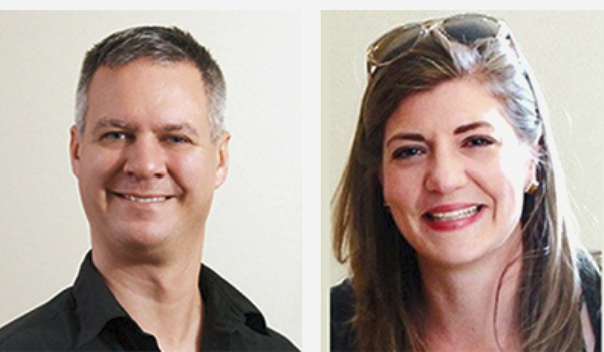WCER researchers win School of Education Award for Community-Engaged Scholarship
March 30, 2024 | By WCER/School of Education Communications

Matthew Wolfgram and Bailey Smolarek lead the Student-Engaged Participatory Action Research Center.
WCER researchers Bailey Smolarek and Matthew Wolfgram are this year's winners of the UW–Madison School of Education's Award for Community-Engaged Scholarship. As leaders of the Student-Engaged Participatory Action Research Center at the Wisconsin Center for Education Research (WCER), Smolarek and Wolfgram are setting new standards of excellence for high-quality, impactful community-engaged research that exemplifies the Wisconsin Idea.
Beginning with their first community-based research project in 2017, the two have established and grown an academic environment that empowers students and community members as partners, not just participants, in research studies.
Their largest ongoing project is a testament to the power of those connections. The project, funded by a $2.2 million grant from the National Science Foundation, partners with HMoob-American students and communities across Wisconsin to examine the experiences of HMoob college students in STEM fields. Students involved with the project were among the nominators of Smolarek and Wolfgram for this award.
WCER Director and Professor of Learning Sciences Courtney Bell says the project showcases the unfailing dedication of Smolarek and Wolfgram to research that centers the experience, knowledge, priorities, and needs of their community partners. Bell calls their work “truly inspiring.”
Professor Stacey Lee notes a presentation for the project drew a standing-room-only crowd on campus, as well as local media attention. She says it should be considered a model as UW–Madison engages in more community-engaged research and policy analysis.
Other ongoing projects of Smolarek, also a Faculty Associate with the Department of Educational Policy Studies, and Wolfgram involve active collaborations with refugee advocacy groups and disability justice advocates. They also continue to train and mentor graduate students, post-docs, junior faculty, and postsecondary practitioners on how to successfully administer participatory action research projects with students and community members. This work ensures that the success of their own projects will help many others flourish as well.


